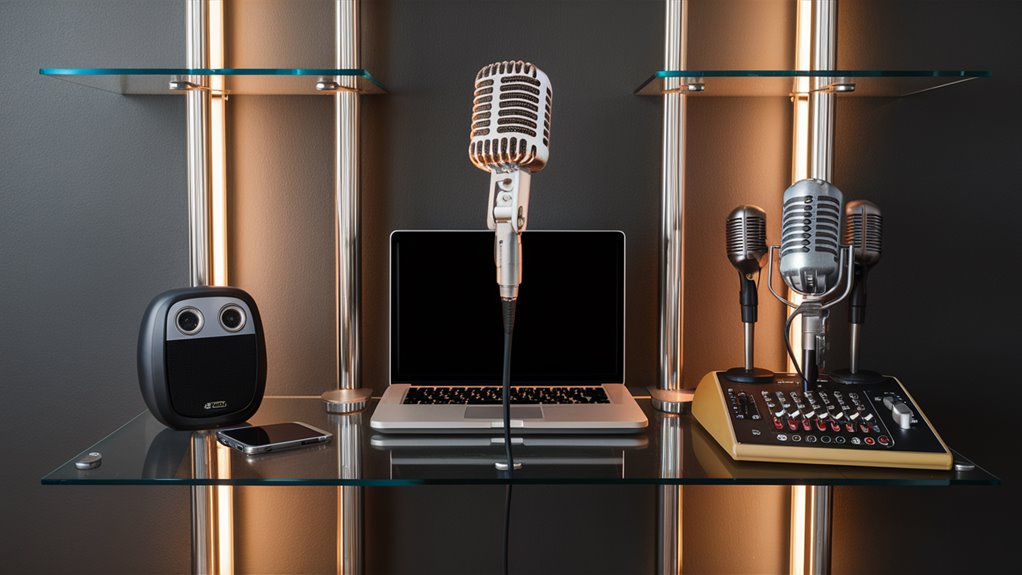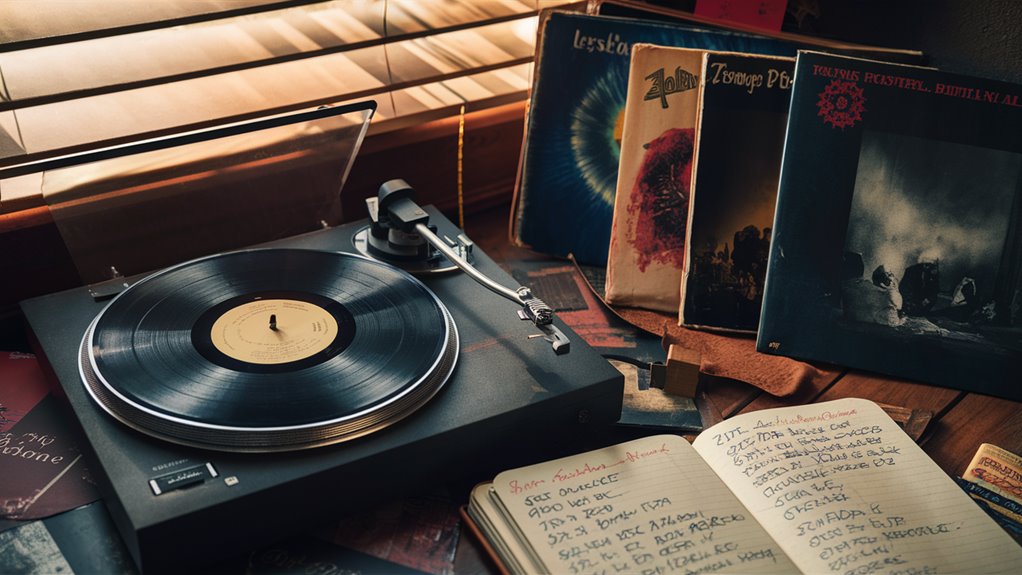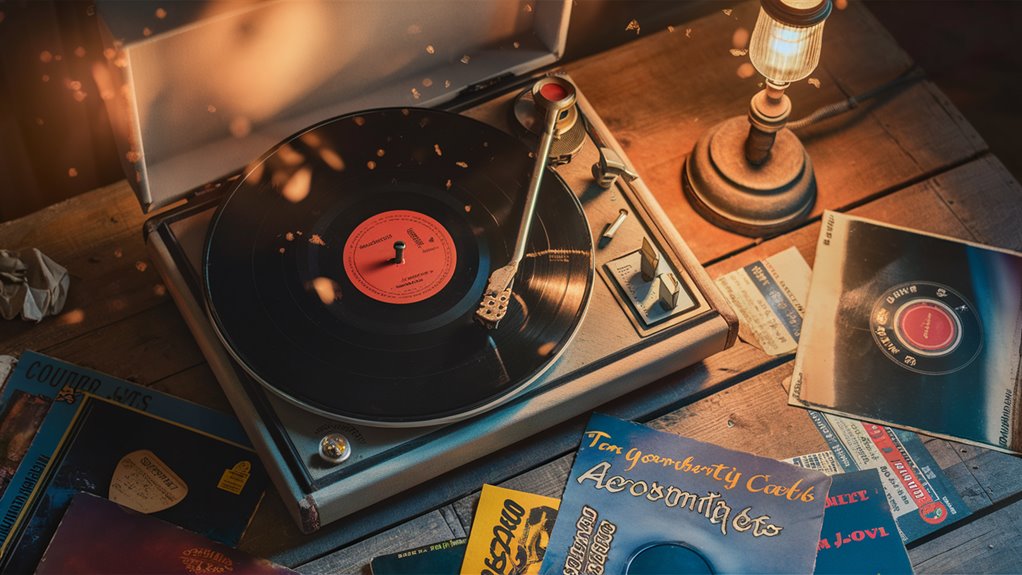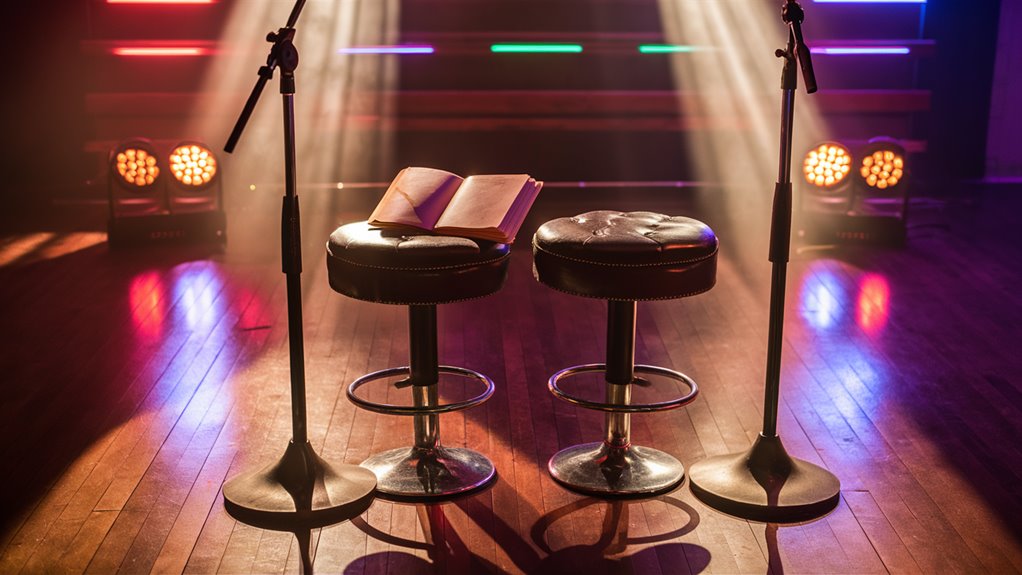How to Pick the Best Karaoke Set for Your Money and Needs

Choosing the Type of System
First, decide if you want an all-in-one unit or a professional setup. This depends a lot on how big your space is and how often you’ll use it. Home karaoke machines need at least 50W RMS power, while places like bars need 100W or more to work well.
Key Features and How to Connect
Look for these must-haves:
- Many mic inputs for group singing
- Bluetooth to connect with new devices
- Digital signal processing (DSP) to stop feedback
- Top-quality audio outs with pro connectors
Getting Songs and Sound Quality
Think about how you like to get songs:
- Using streaming
- Having storage in the device
- USB for outside media
Sound specs should at least be:
- 60dB noise-to-sound rate
- Sound range of 20Hz-20kHz
- Total sound mess under 1%
Different Prices and What You Get
Cheap Systems ($100-300)
- Simple vocal effects
- Easy ways to connect
- Good for home
Mid-Price Systems ($300-800)
- Better sound The Best Songs to Sing If You Have a Deep Voice
- More ways to plug in/out
- Pro features
High-End Systems ($800+)
- Top-notch sound tech
- Better mixing options
- Strong build for heavy use
All About Today’s Karaoke Gear: A Full Guide
Professional Karaoke Equipment
All-in-One Karaoke Units
All-in-one karaoke sets are full packages with everything built in—speakers, amps, mixers, and mics. Most new units let you stream songs with Bluetooth and have lots of tunes already in them. These are easy to carry but may not sound as good as bigger setups.
Component-Based Karaoke Setups
Pro-level systems are the best for sound. They use different high-end parts like strong amps, clear speakers, better mixers, and wireless mics. They need some know-how to set up right but give you great sound and let you upgrade parts as needed.
Online Karaoke Options
App-based karaoke works on phones, tablets, and computers, linking to speakers through wireless or wired ways. While handy and good value, the sound depends heavily on the device you use and the speakers you connect.
Must-Have Features and Tech Specs
- Power from 20W to 2000W depending on the system
- Ways to connect: Bluetooth, Wi-Fi, HDMI, XLR, RCA
- Access to tunes: Built-in storage, streaming, or paid services
- Mic channels: 2-8 inputs for more singers
- Display options: Screens on the unit, TV link, or phone use
Must-Know Features of Karaoke Systems
Sound Specs
Output power is key for any karaoke system. For loud clear sound, systems should have 50 watts RMS for home use, while big spaces need 100+ watts RMS.
Mic Tech and Effects
Mic specs really affect how well you sound. Great systems offer a range from 50Hz to 15kHz and a signal-to-noise rate above 60dB. Built-in DSP effects like reverb and echo help, with separate controls for music and mic levels.
Formats and Storage
Playing different types of files makes systems more flexible:
- MP3
- MP3+G
- CDG
- DVD
Need space Start with 16GB built-in, and add more with USB or SD cards for big music collections.
Options to Connect
Modern sets need lots of ways to connect:
- HDMI for HD screens
- RCA for old gear
- Bluetooth 5.0 for wireless streaming
- Voice cancel tech to make any track karaoke ready
- Phone apps to manage playlists and control the system
These features make sure your karaoke fits right into today’s tech world and match your needs.
How to Get the Best Sound from Karaoke Systems
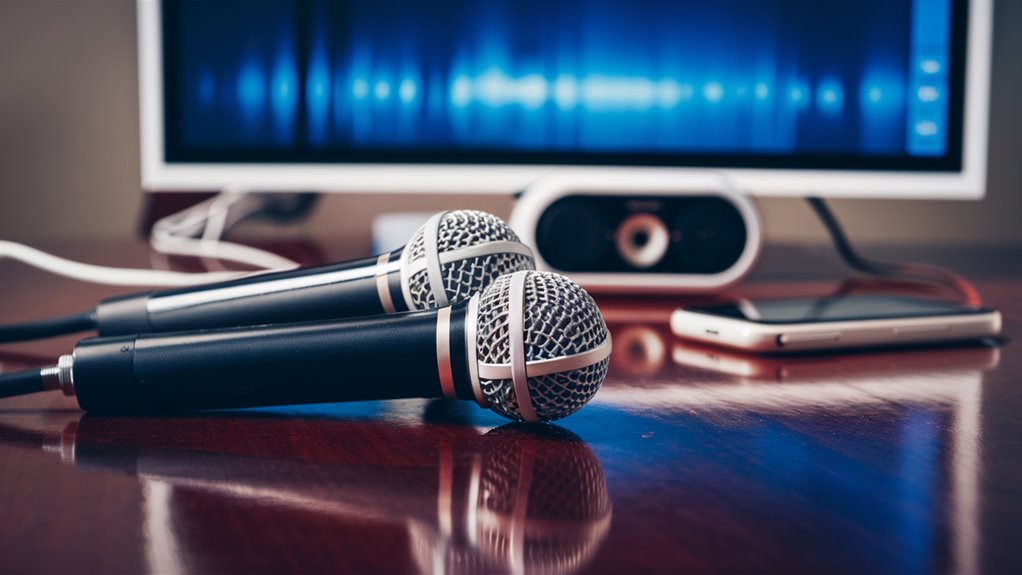
Top Audio Must-Haves
Sound quality is what makes or breaks a pro karaoke set, with smart speaker setups and advanced audio processing working together for clear singing and well-balanced tunes. Systems with separate vocal and music channels give clear sound, letting you fine-tune everything for the best show.
Picking Speakers
Choose speakers that give at least 50 watts RMS per channel. Big systems must manage deep bass and high vocals without messing up the sound. Two-way speakers with separate bass and treble units give better range than single-driver models.
Advanced Sound Tech
Digital signal processing (DSP) with auto feedback stop and vocal boosts is key for pro sound. This is extra important in small places where mics and speakers are close, risking feedback noise. For big spots, think about systems that let you add more speakers, like subwoofer outs and extra speaker hookups. Top sound needs a noise-to-sound rate (SNR) over 90dB, making sure you hear only clean, clear audio.
Linking Devices in Today’s Karaoke Systems
Key Ways to Connect
Today’s karaoke systems must blend smoothly with all sorts of media setups. The best ones offer several ways to connect, like Bluetooth, Wi-Fi, and traditional wires. This keeps streaming easy across different devices and karaoke apps. 현지인 추천 장소 알아보기
Working with Devices
Device fitting is important, with the best systems ready for both iOS and Android phones – the main sources for karaoke fans. Important bits include USB ports for playing MP3+G files and HDMI outs for hooking up to a screen. Systems with their own apps let you manage playlists and control the setup from afar.
Cloud and File Types
Cloud link-ups are a must-have in new karaoke machines, giving you much music and regular updates. Top systems work with big streaming sites and karaoke apps, and the best can go straight to YouTube. To work best, premium machines play many file types like MP3, MP4, CDG, and different video formats, so you have no trouble with files.
Today’s Ways to Access Karaoke Songs
Streaming for Karaoke
Digital karaoke spots have changed how we get songs with pay-to-stream services. Top places like Karafun and Singa let you get to lots of songs right away, with pro sounds and new stuff all the time. You need good net and pay each month, but it’s easy and you get tons of songs and great sound.
Storing Songs Yourself
Handling MP3+G files is key for your own song lists in new karaoke setups. You can use drives or USBs to keep your own song lists, not needing the net or extra costs. This is great for places that stick to certain music types or want steady shows, as you fully control what plays and how it runs.
Mixing Both Ways
Mixed karaoke setups use both streaming and your own lists, giving you all you need for fun shows or pro events. This mix lets you keep important songs close but also use streaming for more choices. It lets you be sure you can play what you need while adding new stuff through the cloud.
Top Mix Features
- Syncing songs in real-time
- Works offline
- Plays many file types
- Dynamic playlist keeping
- Auto updates
Planning Money for Karaoke Gear
Setting Your Budget
Knowing your budget is the first big step in picking a karaoke set that fits what you need. Think about how much you’ll use it, the sound you want, and how big your space is to know how much to spend.
Prices and What They Offer
Cheap Options ($100-300)
- Just the basics
- Simple sound tech
- Normal speaker power
- Good for home
Mid-Priced Choices ($300-800)
- Nicer sound
- Better mic control
- More ways to connect
- Pro bits included
Top-End Sets ($800+)
- Best sound quality
- High-end sound tech
- Strong build for a lot of use
- Top parts used
Thinking Long-Term
Look past just buying cost. Think about important bits:
- How long the warranty lasts
- If you can swap parts
- Chances to make it better
- How good the sound system is
- What it costs to keep it great
All Costs Considered
Add up all the costs of owning it, like:
- What you first pay
- Paid streaming
- Regular care
- Extra stuff needed
- Day-to-day costs
Focus on quality main parts (amps, speakers, mixers) to make the most of your money and keep fixes rare. This smart way makes sure you get top performance for your cash while meeting your tech needs.
